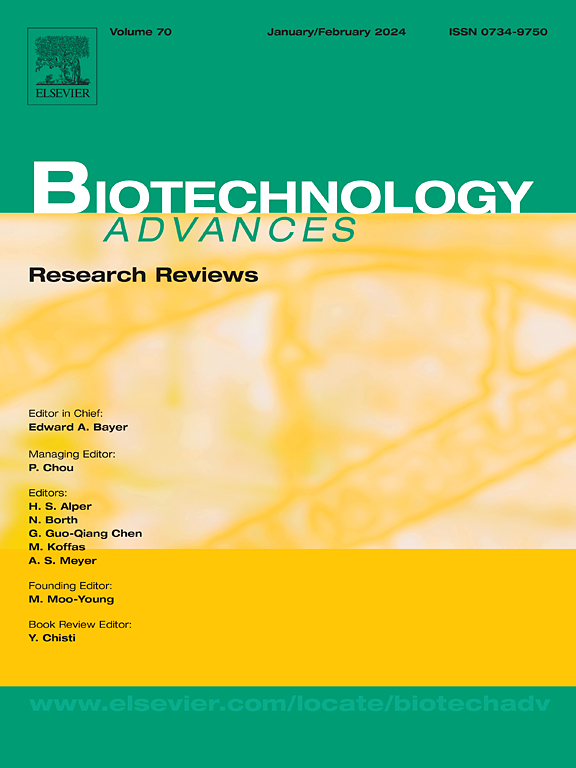电相互作用:电场对细菌细胞影响的综述。
IF 12.5
1区 工程技术
Q1 BIOTECHNOLOGY & APPLIED MICROBIOLOGY
引用次数: 0
摘要
电场通过改变细菌细胞的生理、膜特性、膜电位和通透性,以及它们的代谢和移动性,显著影响细菌细胞。这些相互作用导致生长速度、细胞形态和基因表达的可观察到的变化。本文综述了电场对细菌细胞的影响,重点介绍了电刺激、电穿孔、电泳和介电电泳等机制。这种作用的例子包括增加细菌增殖率,增强有价值化合物的产生,以及影响细胞的运动、取向和聚集。这篇综述强调了如何利用这些机制为目标结果定制细菌特性。在各个领域的应用也进行了讨论,如利用电场提高发酵效率在食品和生物技术行业,延长细胞的稳定性和活力,并精确控制细胞粘附或脱离表面,有利于生物技术和制药领域。此外,这篇综述文章强调了正在进行的研究的重要性,以充分释放电场在涉及细菌的科学研究和工业应用中的潜力。本文章由计算机程序翻译,如有差异,请以英文原文为准。
Electro-interactions: A review of the effects of electric fields on bacterial cells
Electric fields significantly influence bacterial cells by altering their physiology, membrane properties, membrane potential, and permeability, as well as their metabolism and mobility. These interactions result in observable changes in growth rates, cellular morphology, and gene expression. This review provides a comprehensive examination of the effects of electric fields on bacterial cells, focusing specifically on mechanisms such as electro-stimulation, electroporation, electrophoresis, and dielectrophoresis. Examples of such effects include increasing bacterial proliferation rates, enhancing the production of valuable compounds, and influencing cell movement, orientation, and aggregation. The review highlights how these mechanisms can be employed to customize bacterial properties for targeted outcomes. Applications across various sectors are also discussed, such as using electric fields to improve fermentation efficiency in the food and biotechnology industry, to extend cell stability and viability, and to precisely control cell adhesion or detachment from surfaces, benefiting both biotechnology and pharmaceutical fields. Furthermore, this review paper emphasizes the importance of ongoing research to fully unlock the potential of electric fields in both scientific research and industrial applications involving bacteria.
求助全文
通过发布文献求助,成功后即可免费获取论文全文。
去求助
来源期刊

Biotechnology advances
工程技术-生物工程与应用微生物
CiteScore
25.50
自引率
2.50%
发文量
167
审稿时长
37 days
期刊介绍:
Biotechnology Advances is a comprehensive review journal that covers all aspects of the multidisciplinary field of biotechnology. The journal focuses on biotechnology principles and their applications in various industries, agriculture, medicine, environmental concerns, and regulatory issues. It publishes authoritative articles that highlight current developments and future trends in the field of biotechnology. The journal invites submissions of manuscripts that are relevant and appropriate. It targets a wide audience, including scientists, engineers, students, instructors, researchers, practitioners, managers, governments, and other stakeholders in the field. Additionally, special issues are published based on selected presentations from recent relevant conferences in collaboration with the organizations hosting those conferences.
 求助内容:
求助内容: 应助结果提醒方式:
应助结果提醒方式:


